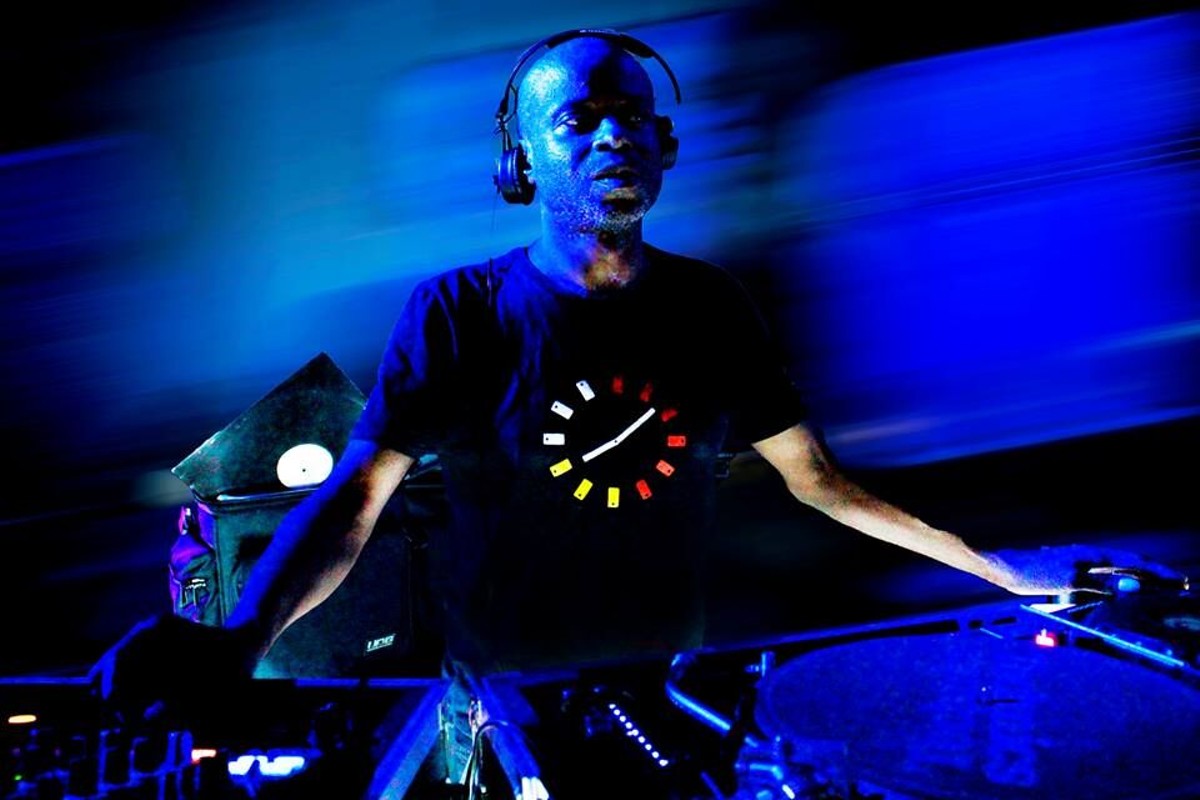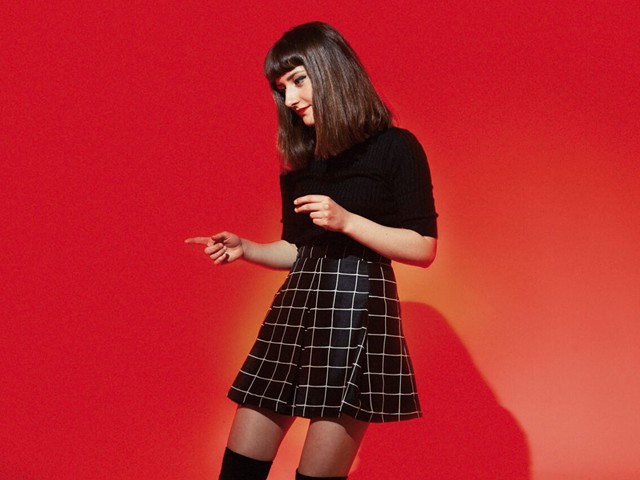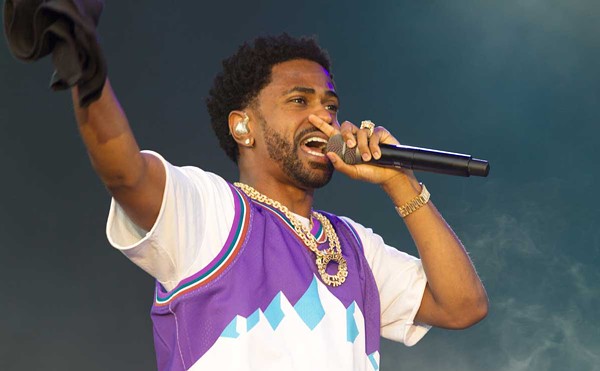Even if you weren't around in Detroit in the '80s to experience the Electrifying Mojo — the eccentric radio personality who dominated the city's airwaves with his popular late night outer space-themed show — firsthand, it's impossible to escape his orbit. The elusive DJ was notorious for his eclectic playlists, which gleefully crossed genre and racial boundaries and shaped local tastes that exist to this day.
Mojo (née Charles Johnson) was the first radio DJ to give Detroit techno a chance, dropping local tracks alongside cuts from the likes of James Brown, Prince, Kraftwerk, the B-52s, and Talking Heads. Yet despite his rabid fanbase (we know people who still carry around their Mojo-issued "Midnight Funk Association" cards), the DJ has maintained a low profile in the years since.
But at this year's Concert of Colors, Mojo's legacy as a radio man will once again be the main attraction. As part of the festival, now in it's 23rd iteration, Mojo serves as the theme of the annual Don Was Detroit All-Star Revue, a revolving door of local acts that will collaborate with veteran producer Don Was' All-Star house band and play songs inspired by his radio show.
"He was an idol to us, man," says Juan Atkins, who is one of the artists participating in the revue. Atkins caught his big break when Mojo played his records as Cybotron — thus popularizing the sound that would later be known as Detroit techno. "Had it not been for Mojo, I don't know where we would be right now," Atkins says. "We would have had a harder way to go had Mojo not been there and playing the music."
Was also enjoyed a bump thanks to Mojo heavily plugging his band Was (Not Was). "A lot of artists that Mojo had, they weren't even considered to be playable on R&B stations," Was says. He recalls recently reminiscing with the Warner Bros. promoter who originally got him on Mojo's show in the early '80s. At the time, there was confusion in the uppermost echelons of the record company where Prince fit on the radio.
"I remember being in the office at Burbank, California, when a promotions man came in with Prince's Controversy album and said, 'What are we supposed to do with this shit?' I'll never forget that!" Was says. Mojo "created this new audience that was this beautiful rainbow of people in Detroit that didn't really exist before, and he established that if it could happen in Detroit it could happen everywhere. And it did."
Atkins agrees. "He went from one side of the spectrum to the other. That was very unconventional for American radio," he says. "The sad thing about the U.S. is that there's still a lot of racial divides in music, in radio, in the way the record companies are set up. You know, you got the R&B department, and the radio stations have the 'urban' stations or the black stations. You got the rock 'n' roll stations, and the country. Everything is so split."
Was has another take on the same phenomenon. "One of the ills of our society is that people feel really cut off from each other. We're community based — in our DNA, we're meant to be tribal," he says. "But you get cut off sitting on the freeway, locked in your car." Mojo, he says, broke through that by creating a sense of belonging to something, urging his listeners to do things like honk their horn or flash their lights to show their solidarity.
"You would see cars doing it at midnight. It was amazing," Was says. "You felt really connected. That doesn't come along that often. You've got to work hard to maintain community in an auto-based society. People are going around in their own little bubbles."
This is the eighth annual All-Star Revue, but Was says that since Mojo is the theme, this year's performance is special. For the occasion, Was has rounded up his band's three singers, "Sweet Pea" Atkinson, Harry Bowens, and Donald Ray Mitchell. Additionally, All-Star bandmate Luis Resto also served as a founding member of Was (Not Was).
(The All-Star band — which features Was on bass; Resto on keyboards; Dave McMurray on saxophone; and Brian Roscoe White on guitar — went through a last-minute lineup change with the recent loss of veteran drummer Terry "Thunder" Hughley, who died from an asthma attack last month. A replacement drummer has not yet been announced.)
The band will collaborate with a roster of artists as diverse as Mojo's playlists, featuring artists like the aforementioned Atkins, along with Amp Fiddler, Detroit Symphony Youth Orchestra String Quartet, Laith Al-Saadi, the Amino Acids, Muruga & the Cosmic Hoedown Band, and more. Was says the idea is that the artists will all join the All-Star band to each play a song "from an imaginary playlist."
"They're all songs that Mojo would've played on his show in 1981," he says.
In a way, Was says the All-Star Revue has always been about replicating that sense of community like Mojo fostered in the '80s. "When we started the Detroit All-Star Revue, that was very much in my mind," he says. "It's as much about the audience coming together and being part of something. By and large you see the same faces every year. Once a year there's this little tribal gathering. It's a beautiful night."
The Eighth Don Was Detroit All-Star Revue starts at 8 p.m. Sunday, July 12 at Max M. Fisher Music Center; 3711 Woodward Ave., Detroit; 313-582-2266; concertofcolors.com; free admission. Other Concert of Colors events are scheduled through July 12 — see the official website for more information.







